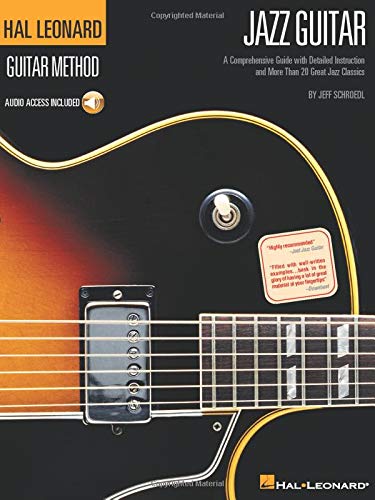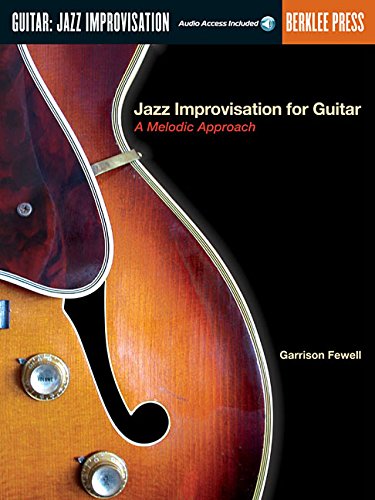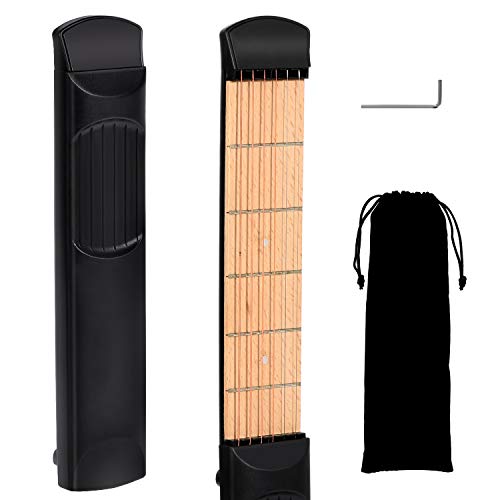(Part 2) Top products from r/guitarlessons
We found 22 product mentions on r/guitarlessons. We ranked the 207 resulting products by number of redditors who mentioned them. Here are the products ranked 21-40. You can also go back to the previous section.
21. The Art Of Contemporary Travis Picking
Sentiment score: 1
Number of reviews: 2
Music Sales
 Show Reddit reviews
Show Reddit reviews22. The Real Book: Sixth Edition
Sentiment score: 2
Number of reviews: 2
The Real Books are the best-selling jazz books of all timeSince the 1970s, musicians have trusted these volumes to get them through every gig, night after nightThe problem is that the books were illegally produced and distributed, without any regard to copyright law, or royalties paid to the compose...
 Show Reddit reviews
Show Reddit reviews23. John Petrucci -- Rock Discipline (DVD)
Sentiment score: 1
Number of reviews: 1
DVD formatCovers: warming up, developing speed and accuracy, chromatic exercises, playing with dynamics, connecting scale fragments to form long solo lines, and moreBackstage with JohnG3 tour footageBloopers on the set
 Show Reddit reviews
Show Reddit reviews24. The Musician's Way: A Guide to Practice, Performance, and Wellness
Sentiment score: 1
Number of reviews: 1
Oxford University Press USA
 Show Reddit reviews
Show Reddit reviews25. Outliers: The Story of Success
Sentiment score: 0
Number of reviews: 1
Great product!
 Show Reddit reviews
Show Reddit reviews28. This Is Your Brain on Music: The Science of a Human Obsession
Sentiment score: 1
Number of reviews: 1
This Is Your Brain on Music The Science of a Human Obsession
 Show Reddit reviews
Show Reddit reviews29. Essential Acoustic Playlist
Sentiment score: 1
Number of reviews: 1
Essential Acoustic Playlist - Chord Songbook
 Show Reddit reviews
Show Reddit reviews30. Hal Leonard Guitar Method - Jazz Guitar: Hal Leonard Guitar Method Stylistic Supplement
Sentiment score: 0
Number of reviews: 1
Featuring in-depth guitar lessons and 40 great jazz classics, the Hal Leonard Jazz Guitar Method is your complete guide to learning jazz guitarThis book uses real jazz songs to teach you the basics of accompanying and improvising jazz guitar in the style of Wes Montgomery, Joe Pass, Tal Farlow, Char...
 Show Reddit reviews
Show Reddit reviews31. Melodic Rhythms for Guitar
Sentiment score: 1
Number of reviews: 1
cf-type-guitar-method-book, cf-vendor-hal-leonard, reverbsync-shipping-profile:Standard Ground Less than 39.99
 Show Reddit reviews
Show Reddit reviews32. Complete Fingerstyle Guitar Method Complete Edition: Book & Online Audio (Complete Method)
Sentiment score: 1
Number of reviews: 1
By Lou Manzi, Nat Gunod, and Steve EckelsISBN 10: 073907525XISBN 13: 9780739075258Series: Complete MethodCategory: Guitar Method or Supplement
 Show Reddit reviews
Show Reddit reviews33. Real Blues-rock Guitar: Revised Edition of Real Rock Guitar With 2 Dvds
Sentiment score: 1
Number of reviews: 1
Manufactured to the Highest Quality Available.With True Enhanced Performance.Latest Technical Development.
 Show Reddit reviews
Show Reddit reviews34. Paul Gilbert: Intense Rock, Vol. 1 and 2
Sentiment score: 0
Number of reviews: 1
Titles - Auld Lang Syne, Deck the Halls, The First Noel, Hark! The Herald Angels Sing, Jingle Bell Rock, Jingle Bells, Oh Come All Ye Faithful, Silent Night
 Show Reddit reviews
Show Reddit reviews35. Beginning Acoustic Blues Guitar (Book & CD)
Sentiment score: 1
Number of reviews: 1
Used Book in Good Condition
 Show Reddit reviews
Show Reddit reviews36. Guitar Atlas Middle East: Your passport to a new world of music, Book & CD
Sentiment score: 0
Number of reviews: 1
By Jeff PeretzSeries: National Guitar Workshop: Guitar AtlasCategory: Guitar method or supplementFormat: Book & CDInstrument: Guitar
 Show Reddit reviews
Show Reddit reviews37. Guitar Electronics for Musicians
Sentiment score: 1
Number of reviews: 1
With Guitar Electronics for Musicians, you'll learn what you want to know, and more, about guitar electronics and pickupsIt covers design concepts and the practical details of the hardware used & made by guitar manufacturers all over the worldBy Donald Brosnac128 pages
 Show Reddit reviews
Show Reddit reviews38. Reading Studies for Guitar: Positions One Through Seven and Multi-Position Studies in All Keys
Sentiment score: 1
Number of reviews: 1
Reading Studies for Guitar BookReading Studies for Guitar gives musicians a comprehensive collection of studies for beginners to improve their sightreading and technical playing abilityGuitar lessons cover positions 1 through 7 in all keys while introducing scales, arpeggios, written-out chords, and...
 Show Reddit reviews
Show Reddit reviews



Cool... alongside the technical stuff (which you'll obviously need) I would definitely spend some time learning some theory to help with the composing.
If you want to do that the "slow and hard way" (but actually quicker and easier than messing around on the internet) I suggest getting a basic harmony textbook and working your way through it. Do all the exercises in a MIDI sequencer so you can hear the results. The book I used back in the day was Piston, but almost any harmony book will probably do. Then get a counterpoint book and do the same thing. Those are strong foundations, and it's stuff you can do away from the guitar. If you get the book and find you're not ready for it, work through the beginner resources in the sidebar of /r/musictheory and then try again.
Aside from that:
A month is a good unit of time to learn something. If you sit down and make a month-by-month plan for the next two years mixing up these elements you should make very solid progress.
I'm sure others will have more genre-specific advice, though!
Look very closely at your picking technique. To go faster you may have to generate the picking motion from other muscles. The picking motion can come from several places, i.e., rotation at the elbow, rotation of the wrist, pronation/supination of the forearm, or moving the fingers that hold the pick. Research all of these different sources of picking motion, try them and find what works for you at the speed you are targeting. It's very important to find the technique that works for that speed. For some people different speed = different technique.
For your fretting hand, I don't have a lot of advice except practice, build up the coordination. Also, don't hold your fingers too far from the fret board. What I mean is, when you release a note, that is remove a finger from the fret board, make sure you're not lifting it up too high.
Overall, to play fast you have to learn to minimize the amount of energy you're expending for each note for both the picking hand and the fretting hand. Hands have a maximum amount of energy they can put out. You can increase that amount of energy with practice but for everybody there is a ceiling.
Also, check out this book: The Inner Game of Music. It will help you with execution. If you've been playing this long the hangups could be mental, that is, what your mindset is when you're playing. This book can help you find the right mindset.
Get The Real Book and work on the easy-to-read stuff.
Most tunes don't stick to a single key, but many do feature an A section in a single key at least. So you could work on reading in the easier keys of C, G and F major at first, and just sticking to the parts you can read. A byproduct of this will be your increasing awareness of where the white keys are on your fretboard, which is a phenomenal skill to develop.
As you grow increasingly comfortable reading, you can add keys with up to 4 sharps and flats (D, Bb, A, Eb, E, Ab). Many of the tunes in the Real Book are in F, Bb, Eb and Ab (and their respective relative minors) so you'll have a ton of options here =)
David Oakes' book on Sight Reading for Guitar is a decent one for learning how to sight-read if you're a beginner:
https://www.amazon.com/Music-Reading-Guitar-Complete-Method/dp/0793581885/ref=sr_1_fkmr0_1?ie=UTF8&qid=1466625720&sr=8-1-fkmr0&keywords=David+Oates+sight+reading
If you get through that one, try out William Leavitt's Melodic Rhythms for Guitar. This one is really solid:
https://www.amazon.com/Melodic-Rhythms-Guitar-William-Leavitt/dp/0634013327/ref=sr_1_5?s=books&ie=UTF8&qid=1466625895&sr=1-5&keywords=William+Leavitt
I've not looked through this one, but if you're interested in combining classical guitar and sight reading, it might be worth a shot:
https://www.amazon.com/Sight-Reading-Classical-Guitar-Level/dp/0769209742/ref=pd_rhf_se_s_cp_15?ie=UTF8&dpID=514XaC6KshL&dpSrc=sims&preST=_SL500_SR103%2C135_&psc=1&refRID=0E43T3ND9D1TG4KDPZVE
Good luck!
Hm bummer you can't get a teacher yet, it's supremely helpful to have someone pointing out bad technique before it turns into a habit. If I had to do things over again, I would practice slowly and with perfect form for a long time. So make sure to get yourself a metronome. Most online ones suck so I'd just buy a cheap one. I'm on mobile so I can't do a fancy link but here: http://www.amazon.com/gp/aw/d/0757995500?pc_redir=1396851218&robot_redir=1
That is IMO the best resource on learning technique. In place of a teacher, I would highly highly highly highly recommend that book and DVD's.
Studying Jazz lead sheets is the most helpful, and the most commonly used book is the Real Book. The real book has Jazz Standards, and it gives the lead sheets with the melody written in sheet music, and the chord symbols written above the staff.
​
Looking at chords is mostly seeing what the quality of it is (minor, major, dominant, ect.), and then just looking at the extensions. Once you understand the types of chords, everything else is pretty simple.
​
I've made a guide to reading chord symbols, and it goes over all the common types of chords with common extensions. Here you go: https://docs.google.com/document/d/1G9GsGFRwS_2VqbyKma1JL8nti3OMTHZm5eGZ7nTU1zY/edit?usp=sharing
​
One last thing, you want to figure out chords yourself, or you'll never be able to completely understand chords, but if there are just some things that you can't figure out, here's a book I use that has chords galore in all keys: https://www.guitarcenter.com/Proline/Picture-Guitar-Chord-Pocket-Guide-Book.gc Think of it more as a something that helps, not your go-to thing for figuring out chords.
​
Hope this helps!
For the really technical stuff, Guitar Electronics for Musicians taught me all kinds of awesome. As for satisfying the bullet in my list, I don't have a specific resource, but your ears are your best tool. Fiddle with all the fiddly bits and describe to yourself what effect each has. Also, Google your specific guitar model, and you'll get more explanations.
I would do 2 things:
http://www.amazon.com/Real-Blues-Rock-Guitar-Revised-Edition/dp/0739065181/ref=sr_1_1?ie=UTF8&qid=1342229838&sr=8-1&keywords=real+rock+blues+guitar
I have this book at its pretty cool. It's cheap and it comes with DVD's. It's a lot of tabs/sheet music that are "in the style of" all the blues rock greats. The author does a decent job of explaining what keys, chord progressions, and scales are used by specific players and in what songs. There's also a small history section on guys like Duane Allman, Page, Clapton, Betts, Beck etc. I'd say for 15 bucks its a good deal.
It sounds like you need to have a go at teaching yourself the real basics. Get open chords down first - there are 8 standard ones (A major, A minor, C major, D major, D minor, E major, E minor, G major). With those chords, there are hundreds if not thousands of songs you would be able to play.
Learn about keys and what chords sound good together, and why.
Other tunings are completely irrelevant in the early days of learning. I've been playing for 20 years now and still barely touch them. Unless you're going for metal or some really avant garde music (or Joni Mitchell), the vast majority of songs will be playable in standard tuning.
Also, be aware that many tabs you find for free on the internet are bad. It's not the greatest way to learn, and developing your ear to figure things out yourself is a far better experience. Look into getting yourself some books that have songs arranged for guitar strumming (eg Essential Acoustic Playlist )
The Art of Contemporary Travis Picking by Mark Hanson was really helpful for me. If you're interested in the Travis picking style, this could do you good!
The Modern Method books are good but Leavitt's Sight Reading Studies For Guitar are great for practicing positional sight reading.
This idea of keys conveying different emotions is from a time when keys actually sounded different. Before equal temperament became the dominant tuning system certain chords would actually sound sweeter and more pure than others. Now they all sound equally "imperfect" in every key. When you're looking at something an old composer wrote like this list or "the well tempered clavier" by Bach, you have to remember it doesn't sound the same today as it did back then. Each key used to have distinct quirks of character but now they all have identical character, just a different pitch.
To make matters worse that pitch isn't even the same as what the old composers were talking about either. The pitch of the notes has changed over the years. "A" has ranged from 410 Hz to as high as 460 Hz. 440 Hz is the standard today. That means when a composer in Bach's time was talking about the key of "C", he's actually talking about the key we would call "B" today, so any list of descriptions he made is doubly irrelevant to music today.
To the OP's original question about emotions experienced when listening to different chords, much of it is a learned response specific to your culture. The major=happy and minor=sad perception is a very western perception that's not present in all cultures. It's obviously very difficult to separate what's a learned response from what you're hard wired with, the old nature vs. nurture debate, so this is somewhat of an unanswered question in science. If you're interested in the subject you'd enjoy Daniel Levin's book "This Is Your Brain On Music"
That was one of the first books I picked up when I started learning. Really helps with being in the right mindset.
Also recommend The Musicians Way and The Practice of Practice.
Buy this book- http://www.amazon.com/The-Contemporary-Travis-Picking-Fingerpicking/dp/0936799005
I've tried a few different DVD's, books, youtube clips,etc but have found this book most useful.
I have a couple of recommendations for you! First, The Art of Contemporary Travis Picking is a really good introduction to an alternating-bass style of fingerpicking. And then second, Complete Fingerstyle Method is a big brick of a method book that will keep you busy for a long time.
If you've got your scales covered. I'd recommend Paul Gilbert's Intense Rock.
This is the tab for the video, but there are a few mistakes easy to spot.
Yeah i was trying for Arabic music , i can't really afford guitars (bought an old used one for really really cheap) much less a teacher and the hound dog song is what justinguitar.com had as one of the songs to learn for the beginners. Would it be easier to play the F , G and C all of em using barre chords i can make the F one easy enough but not the way i linked up there the trouble is moving it around.
The guy who posted the scales said he took them from this
Guitar Atlas: Middle East
Here are some jazz recommendations for ya:
http://www.amazon.com/Mel-Bay-Jazz-Guitar-Standards/dp/0786666455
http://www.amazon.com/Hal-Leonard-Guitar-Method-Jazz/dp/0634001442/ref=cm_cr_pr_product_top
http://www.amazon.com/Best-Jazz-Guitar-Signature-Licks/dp/0634022660/ref=cm_cr_pr_product_top
Some tabs / videos on my site:
https://sites.google.com/site/decmusicstudios/youtube-teaching-videos
You got that from Malcom Gladwell's "Outliers: The Story of Success"! It was in reference to the Beatles.